Abstract
Antibodies to acetylcholine receptors (AChR) are probably directly responsible for the pathogenesis of myasthenia gravis (MG). Methods for the demonstration of these antibodies are complicated. The present study shows that the antibodies can also be revealed by the use of the simple indirect immunofluorescence technique with rat diaphragm as substrate. Antibodies were demonstrated with FITC-labelled anti-human Ig. The location on the motor endplates was confirmed by using a TRITC-labelled anti-alpha-bungarotoxin system. Antibodies to motor endplates were only demonstrated in MG and not in either twenty-two patients with neuromuscular disorders or fifty normal subjects. Antibodies to motor endplates were found in only twelve out of fifty-seven MG patients. In fifteen of the other forty-five patients, antibodies were found of the classical anti-skeletal muscle type, 'overluminating' the anti-motor endplate antibodies.
Full text
PDF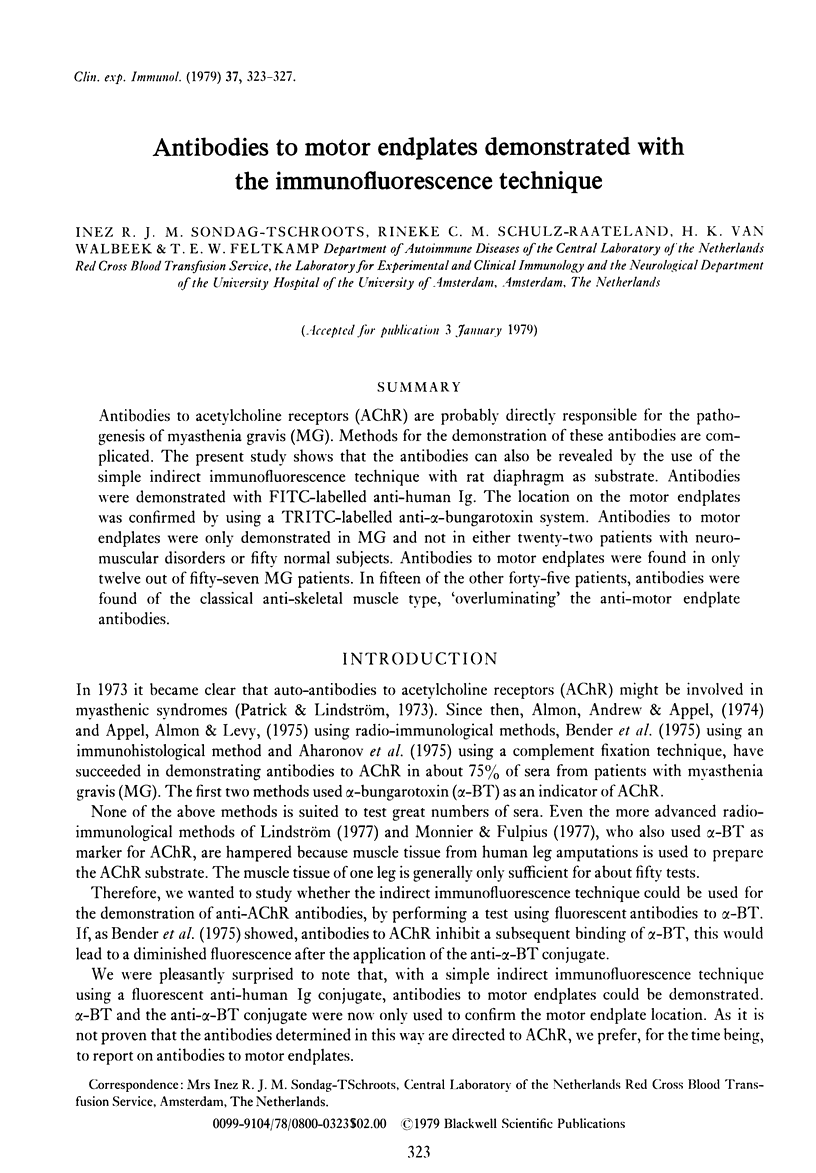
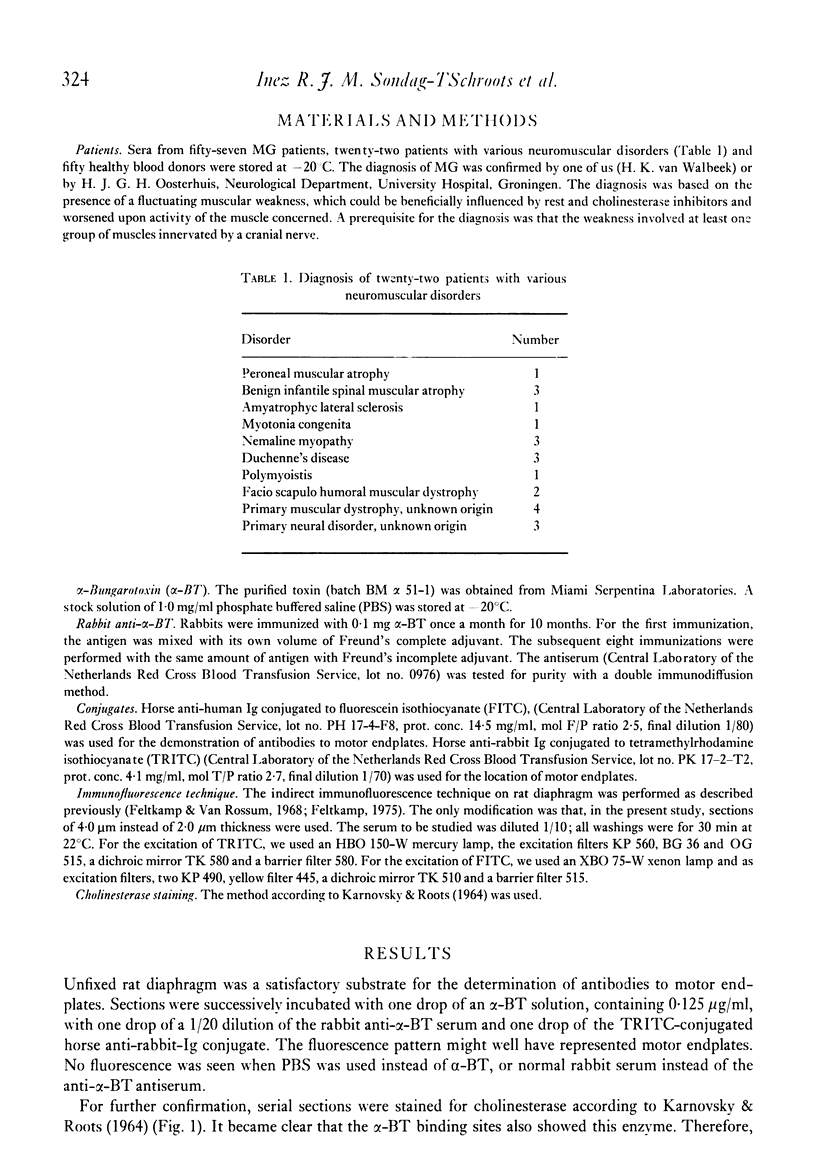
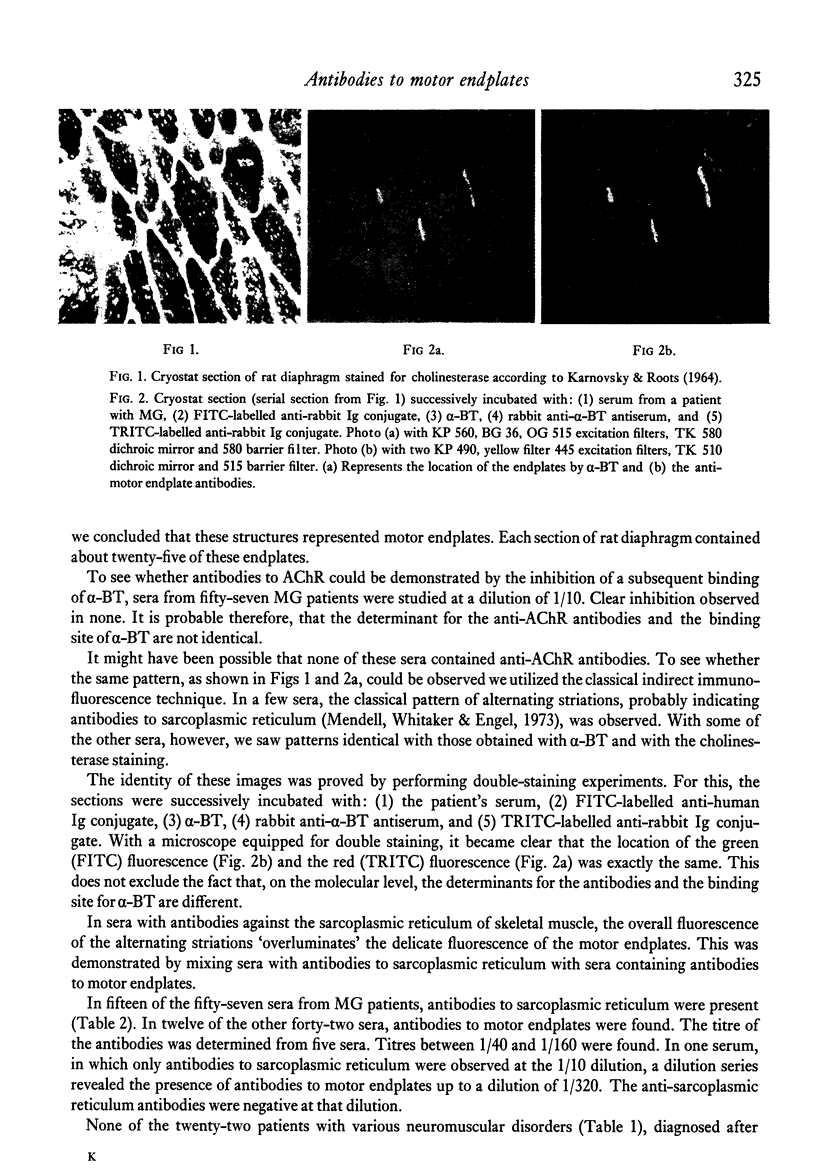
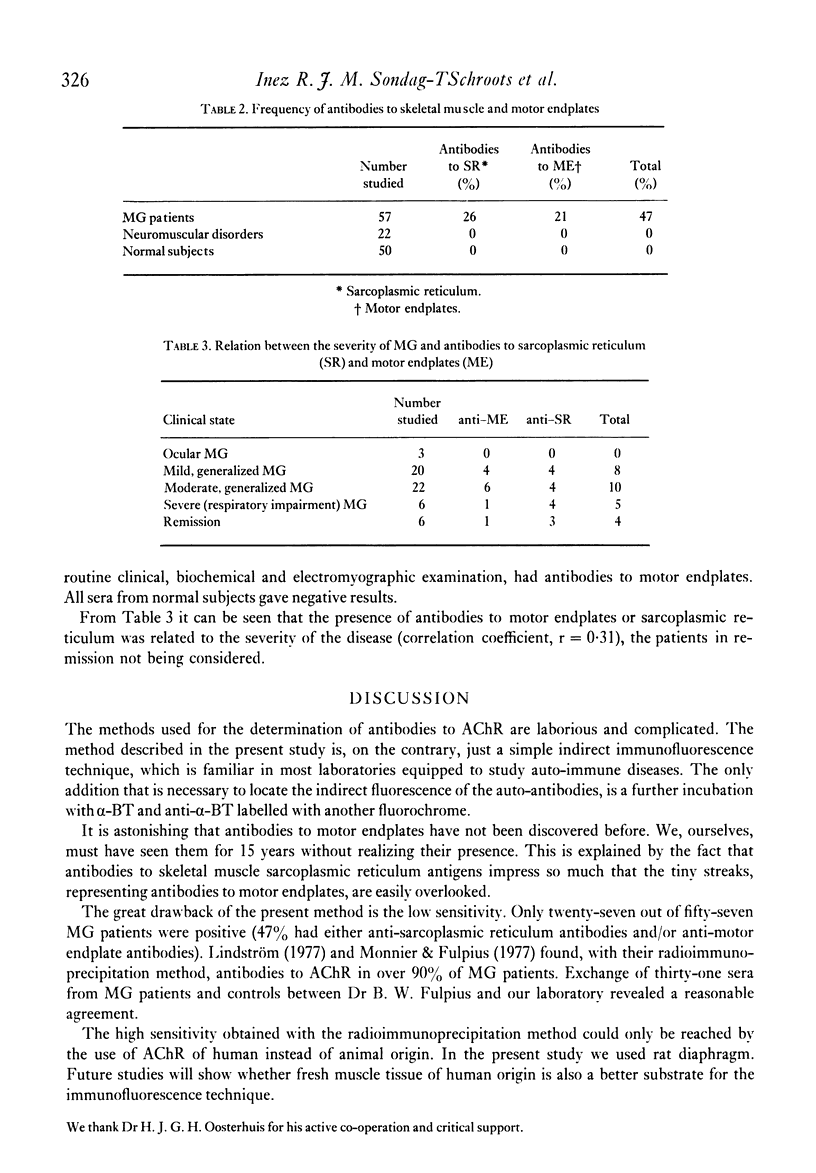
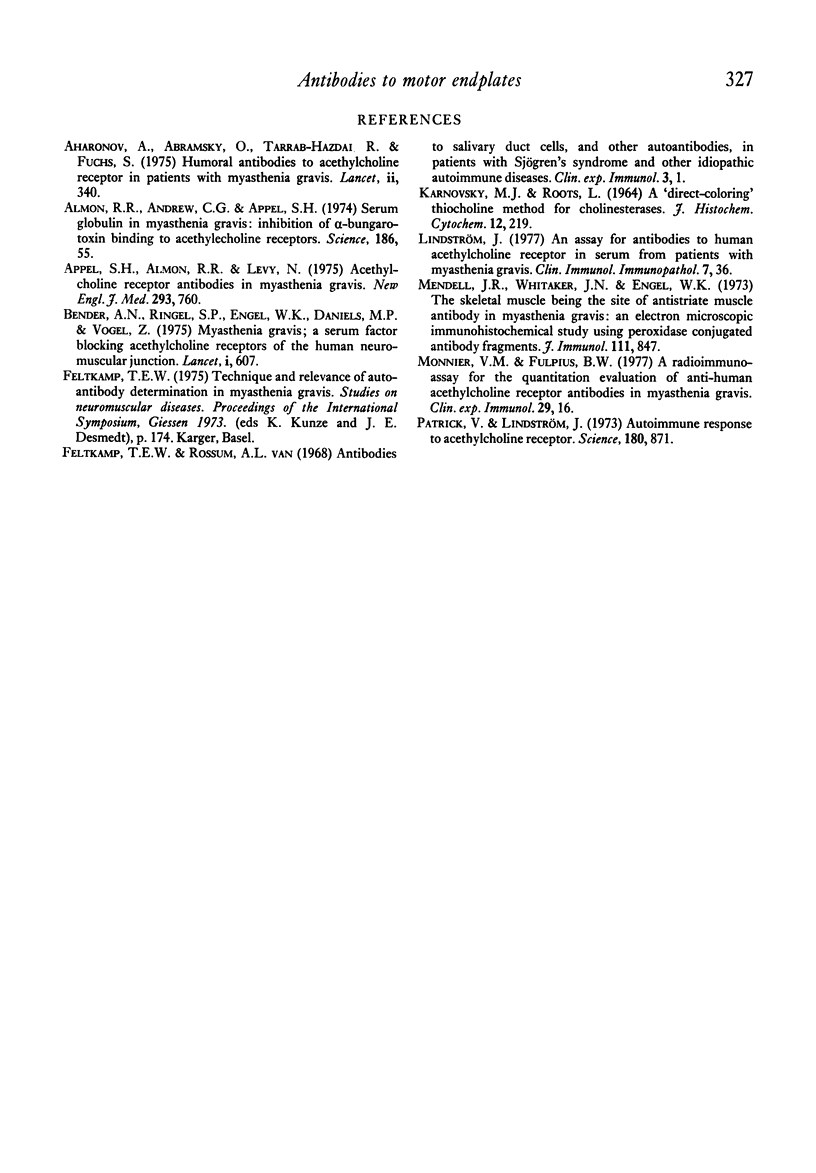
Images in this article
Selected References
These references are in PubMed. This may not be the complete list of references from this article.
- Aharonov A., Abramsky O., Tarrab-Hazdai R., Fuchs S. Humoral antibodies to acetylcholine receptor in patients with myasthenia gravis. Lancet. 1975 Aug 23;2(7930):340–342. doi: 10.1016/s0140-6736(75)92779-8. [DOI] [PubMed] [Google Scholar]
- Almon R. R., Andrew C. G., Appel S. H. Serum globulin in myasthenia gravis: inhibition of alpha-bungarotoxin binding to acetylcholine receptors. Science. 1974 Oct 4;186(4158):55–57. doi: 10.1126/science.186.4158.55. [DOI] [PubMed] [Google Scholar]
- Appel S. H., Almon R. R., Levy N. Acetylcholine receptor antibodies in myasthenia gravis. N Engl J Med. 1975 Oct 9;293(15):760–761. doi: 10.1056/NEJM197510092931508. [DOI] [PubMed] [Google Scholar]
- Bender A. N., Ringel S. P., Engel W. K., Daniels M. P., Vogel Z. Myasthenia gravis: a serum factor blocking acetylcholine receptors of the human neuromuscular junction. Lancet. 1975 Mar 15;1(7907):607–609. doi: 10.1016/s0140-6736(75)91886-3. [DOI] [PubMed] [Google Scholar]
- Feltkamp T. E., van Rossum A. L. Antibodies to salivary duct cells, and other autoantibodies, in patients with Sjögren's syndrome and other idiopathic autoimmune diseases. Clin Exp Immunol. 1968 Jan;3(1):1–16. [PMC free article] [PubMed] [Google Scholar]
- KARNOVSKY M. J., ROOTS L. A "DIRECT-COLORING" THIOCHOLINE METHOD FOR CHOLINESTERASES. J Histochem Cytochem. 1964 Mar;12:219–221. doi: 10.1177/12.3.219. [DOI] [PubMed] [Google Scholar]
- Lindstrom J. An assay for antibodies to human acetylcholine receptor in serum from patients with myasthenia gravis. Clin Immunol Immunopathol. 1977 Jan;7(1):36–43. doi: 10.1016/0090-1229(77)90027-7. [DOI] [PubMed] [Google Scholar]
- Mendell J. R., Whitaker J. N., Engel W. K. The skeletal muscle binding site of antistriated muscle antibody in myasthenia gravis: an electron microscopic immunohistochemical study using peroxidase conjugated antibody fragments. J Immunol. 1973 Sep;111(3):847–856. [PubMed] [Google Scholar]
- Monnier V. M., Fulpius B. W. A radioimmunoassay for the quantitative evaluation of anti-human acetylcholine receptor antibodies in myasthenia gravis. Clin Exp Immunol. 1977 Jul;29(1):16–22. [PMC free article] [PubMed] [Google Scholar]
- Patrick J., Lindstrom J. Autoimmune response to acetylcholine receptor. Science. 1973 May 25;180(4088):871–872. doi: 10.1126/science.180.4088.871. [DOI] [PubMed] [Google Scholar]





